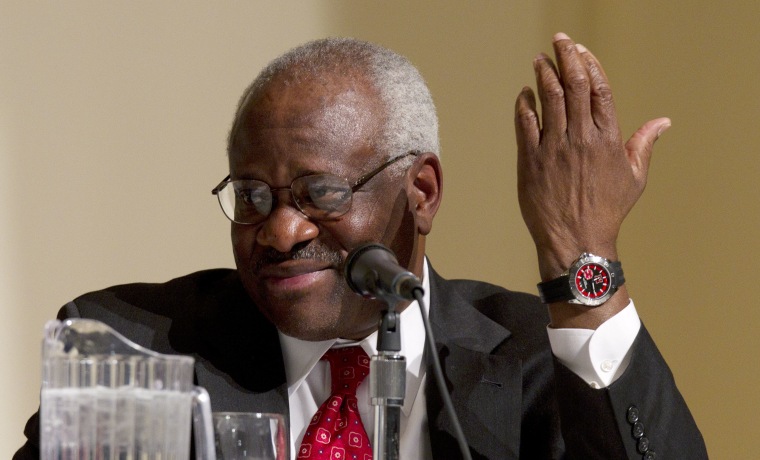This year's big U.S. Supreme Court case for the separation of church and state involved something known as the "Peace Cross" -- a 40-foot-tall concrete Christian symbol on public land in Maryland, not far from Washington, D.C. The case, not surprisingly, was based on the idea that state support for a giant cross -- erected as a World War I memorial nearly a century ago -- is at odds with the First Amendment.
The justices didn't quite see it that way. In American Legion v. American Humanist Association, a court majority said the cross can remain because it is old. "With sufficient time, religiously expressive monuments, symbols, and practices can become embedded features of a community's landscape and identity," Justice Samuel Alito wrote.
The full ruling is a little complicated, with a series of concurring rulings -- and one excellent dissent from Justices Ruth Bader Ginsburg and Sonia Sotomayor, who offered a spirited defense of church-state separation -- including Justice Neil Gorshuch expressing a degree of scorn for atheists.
But in a piece for NBC News, Jessica Levinson, a professor at Loyola Law School, highlighted a detail of particular interest.
Look behind the curtain and we have justices putting forward opinions that would fundamentally re-shape our understanding of the Establishment Clause.We have our longest-serving justice, Clarence Thomas, arguing that the Establishment Clause may not even apply to actions by states and localities, but instead only applies to laws passed by Congress.
That's not an exaggeration. Under Clarence Thomas' vision, state governments don't necessarily have to honor the First Amendment's religious liberty clauses at all.
The implications of such a radical vision are staggering.
Imagine an admittedly ridiculous hypothetical. Let's say Alabama were to pass a law endorsing the Southern Baptist Convention as the state's preeminent religious tradition. In this same law, let's also say Alabama lawmakers encouraged state residents who aren't currently Southern Baptists to convert.
Common sense tells us such a measure would immediately be struck down as unconstitutional, because it would obviously be at odds with the First Amendment's establishment clause.
Except in Justice Thomas' vision, it wouldn't, because he believes the establishment clause applies exclusively to the U.S. Congress -- and no one else.
As Slate's Mark Joseph Stern put it, the far-right jurist seems to believe a state legislature "could literally establish an official religion without infringing upon the Constitution."
It's worth emphasizing that Thomas, at least for now, stands alone on this. The Supreme Court has a conservative majority, but only the longest serving far-right member is prepared to take such a radical view.
But in contemporary Republican politics, especially in the wake of Antonin Scalia's passing, Clarence Thomas is the platonic ideal of what a Supreme Court justice would be.
It makes his extremism that much more relevant.
